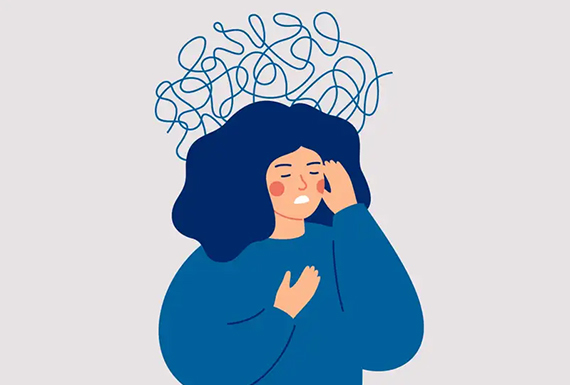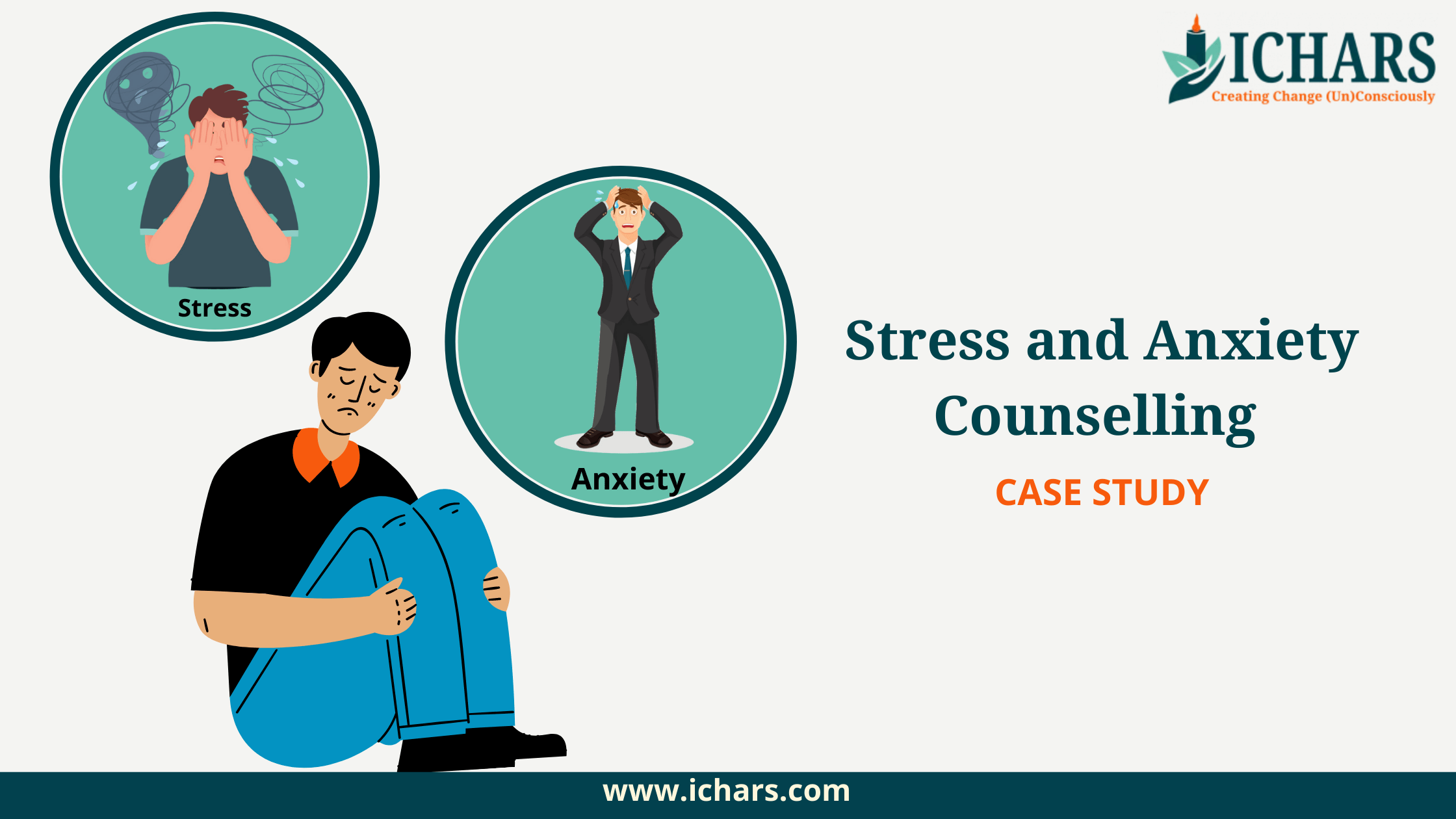Reach out today for specialized counselling for anxiety services
Wiki Article
Exploring Various Techniques in Therapy for Anxiety Condition for Long Lasting Change
When dealing with anxiety disorders, it's necessary to discover a range of therapy methods. Each technique offers unique understandings and devices to assist you manage your symptoms properly. You might locate that incorporating strategies can yield the best outcomes. Nonetheless, recognizing the subtleties of these methods is key to fostering lasting change. Suppose the ideal combination could launch a new level of psychological wellness for you?Comprehending Anxiousness Problems: A Quick Summary
Anxiousness disorders, which impact countless individuals worldwide, can greatly affect everyday life. You may experience overwhelming sensations of anxiety or fret that seem uncontrollable. These feelings can bring about physical signs and symptoms like a racing heart, sweating, or perhaps wooziness. Common sorts of anxiousness problems include generalized stress and anxiety problem, panic attack, and social stress and anxiety disorder. Each has special signs, yet they all share a propensity to disrupt your regular and relationships.Understanding the source of your anxiety is important. It may originate from genetics, mind chemistry, or life experiences. Acknowledging your triggers can help you manage your feedbacks better. It is necessary to keep in mind that you're not the only one in this battle. Lots of people encounter comparable obstacles, and seeking assistance is a solid step towards feeling better. By learning more about anxiety conditions, you're already on the path to understanding and handling your condition extra effectively.Cognitive-Behavioral Treatment: Challenging Adverse Idea Patterns
In Cognitive-Behavioral Treatment, you'll begin by determining the unfavorable idea sets off that contribute to your anxiousness. You'll function on changing them with even more favorable options once you identify these ideas. With each other, you'll build reliable coping strategies to assist handle your anxiety in everyday situations.Determining Unfavorable Thought Triggers

Recognizing the particular triggers behind your negative thoughts can be crucial in managing anxiousness when you experience moments of distress. Begin by taking note of situations that provoke feelings of worry or worry. Is it a crowded area, a future due date, or a conversation with certain people? Write down these circumstances in a journal. This will certainly assist you recognize patterns in your reasoning. Notification physical experiences that accompany your negative ideas, like an auto racing heart or rigidity in your upper body. By pinpointing these triggers, you gain insight right into what's sustaining your anxiousness. Understanding these connections is the very first step in testing those thoughts and ultimately gaining back control over your emotional reactions.
Replacing Thoughts With Positives
Testing negative idea patterns is an essential step in changing your frame of mind and lowering anxiety. You might usually discover yourself trapped in cycles of self-doubt or disastrous thinking. As opposed to allowing these thoughts dictate your feelings, practice replacing them with favorable affirmations or reasonable alternatives. When you assume, "I can't manage this," shift it to, "I can handle challenges one action at a time." This basic change can significantly influence your mood. Routinely recognizing and responding to these unfavorable thoughts assists produce a much healthier interior discussion. Bear in mind, it takes time and effort, but regularly exercising this technique can result in enduring adjustment, empowering you to deal with anxiousness with restored self-confidence and resilience.Building Coping Approaches Together
Replacing unfavorable thoughts is only the beginning of taking care of stress and anxiety effectively. To create long-term change, you require to build coping approaches that equip you. Cognitive-Behavioral Therapy (CBT) helps you recognize and challenge those unhelpful idea patterns. With each other, you and your therapist can check out just how these thoughts impact your sensations and behaviors.Start by creating useful strategies, like journaling or mindfulness workouts, that allow you to confront anxiousness head-on. When you encounter your fears slowly, you'll learn to react differently.
Mindfulness and Acceptance-Based Approaches: Growing Present-Moment Awareness
As you navigate the intricacies of anxiety, integrating mindfulness and acceptance-based techniques can significantly improve your capacity to grow present-moment awareness. By focusing on the present moment, you'll locate that you can observe your ideas and feelings without judgment (Counseling services for anxiety). This technique helps you recognize your stress and anxiety without feeling overwhelmed by it.Engaging in mindfulness workouts, such as deep breathing, body scans, or directed meditations, permits you to ground yourself in your present experience. Acceptance-based approaches encourage you to accept your emotions instead than deal with against them. They lose their power over you.Incorporating these methods into your day-to-day routine can change just how you respond to anxiousness when you approve your feelings. You'll create resilience and learn to navigate demanding situations with better convenience. Ultimately, cultivating present-moment awareness lays the foundation for long lasting change, empowering you to lead an extra satisfying lifeExposure Therapy: Challenging Concerns Gradually
Exposure treatment assists you challenge your concerns in a progressive method, making it less frustrating. You'll find out techniques to deal with anxiety-provoking situations action by step, while also building coping methods to handle your reactions. This strategy empowers you to take control and lower stress and anxiety with time.Gradual Direct Exposure Strategies

When encountering stress and anxiety, progressively confronting your fears can be an effective way to gain back control. This strategy, called steady direct exposure, involves slowly exposing yourself to the situations or things that activate your anxiousness. Start with less challenging scenarios and gradually function your way approximately even more tough ones. As an example, if you hesitate of public talking, you might start by talking in front of a mirror, after that proceed to sharing thoughts with a close friend, and at some point address a tiny group. Each action assists desensitize you to the worry, developing your confidence over time. Remember, it's important to pace yourself and commemorate little triumphes as you relocate via this process, enhancing your ability to take care of anxiousness efficiently.
Building Coping Techniques
Building efficient coping methods is vital for taking care of anxiety, specifically as you face your fears gradually - Counseling services for anxiety. One effective method is direct exposure therapy, where you begin by facing your fears in a controlled way. Begin with less intimidating circumstances and gradually work your means approximately even more tough situations. This gradual direct exposure helps desensitize you to anxiousness triggers, making them less overwhelming.Incorporate relaxation methods, such as deep breathing or mindfulness, to relax your mind during exposure. Track your development, celebrating little triumphes in the process to improve your confidence. Keep in mind, it's all right to take your time; the goal isn't excellence but stable enhancement. By constructing these methods, you'll encourage on your own to browse stress and anxiety and embrace life much more completelyPsychodynamic Treatment: Uncovering Source of Anxiety
Psychodynamic therapy explores the unconscious mind, disclosing the origin of your anxiety. By analyzing your ideas, sensations, and previous experiences, this method aids you discover underlying conflicts and unsolved issues that may add to your existing anxiousness. You'll function with a therapist to explore youth experiences, connections, and emotional patterns that form your responses today.As you acquire insight into these deeper layers of your subconscious, you'll start to identify exactly how previous events affect your existing habits. This understanding can lead to catharsis, enabling you to refine emotions you could have suppressed.Through the restorative relationship, you can additionally determine defense mechanisms that may have created with time, using a more clear course to transform. Ultimately, psychodynamic treatment equips you with the tools to address your stress and anxiety at its core, promoting lasting improvement in your emotional wellness.Alternative and integrative Approaches: Incorporating Strategies for Greater Efficacy
Incorporating numerous therapeutic techniques can improve your trip towards managing anxiety better. By integrating elements from cognitive-behavioral treatment, mindfulness methods, and all natural strategies, you can develop a tailored method that resolves your special requirements. You may utilize cognitive-behavioral strategies to test adverse thought patterns while including mindfulness exercises to ground on your own in the existing moment.Additionally, discovering alternative techniques such as yoga exercise or meditation can promote leisure and decrease stress and anxiety symptoms. This mix permits you to establish higher self-awareness and resilience.Experimenting with these varied techniques can help you discover what resonates most with you. Remember, it has to do with discovering a harmony that works, rather than staying with a solitary technique. This integrative approach not just provides prompt relief yet also fosters long-term abilities for handling stress and anxiety, empowering you to reclaim control over your life.The Duty of Assistance Systems: Structure Durability Through Connection
While it may seem that taking care of stress and anxiety is a solitary trip, having a solid assistance system can play a crucial function in your durability. Surrounding on your own with compassionate good friends, family, or support system creates a safe area where you can openly share your sensations and experiences. You remind on your own that you're not alone in this struggle.These relationships offer motivation and can give sensible coping techniques that have actually worked for others when you link with others. It's likewise a possibility to acquire point of view; close friends can assist you see situations in a different way, lowering feelings of isolation.Moreover, emotional assistance fosters a feeling of belonging, which can greatly minimize stress and anxiety symptoms. By leaning on your support system, read more you can construct strength and tackle challenges better. Keep in mind, connecting for aid suggests strength, and it can make all the difference in your trip toward managing anxiety.Often Asked Concerns
What Are the Usual Symptoms of Stress And Anxiety Conditions?
You might experience uneasyness, fatigue, difficulty concentrating, irritation, muscle mass tension, and sleep disruptions. Physical signs and symptoms can consist of quick heart beat, sweating, and shivering. Acknowledging these indicators early can aid you look for proper assistance and therapy.Exactly How Long Does Therapy Commonly Last for Anxiousness Problems?
Therapy for stress and anxiety conditions normally lasts anywhere from a few weeks to a number of months. It really depends upon your individual needs, progression, and the strategies your specialist utilizes to assist you handle your anxiousness successfully.Can Medicine Be Utilized Together With Therapy for Stress and anxiety?
Yes, medication can definitely be made use of along with treatment for stress and anxiety. Combining both approaches often boosts treatment effectiveness, aiding you handle symptoms while discovering underlying problems via counseling (Counseling services for anxiety). Always consult your medical care copyright for tailored recommendationsAre There Self-Help Approaches for Handling Anxiety?
Yes, there are numerous self-help techniques for taking care of stress and anxiety. You can exercise mindfulness, participate in regular exercise, maintain a well balanced diet, develop a routine, and make use of deep breathing techniques to help in reducing anxiety signs and symptoms successfully.How Do I Know if I Required Professional Assistance for Anxiety?

Report this wiki page